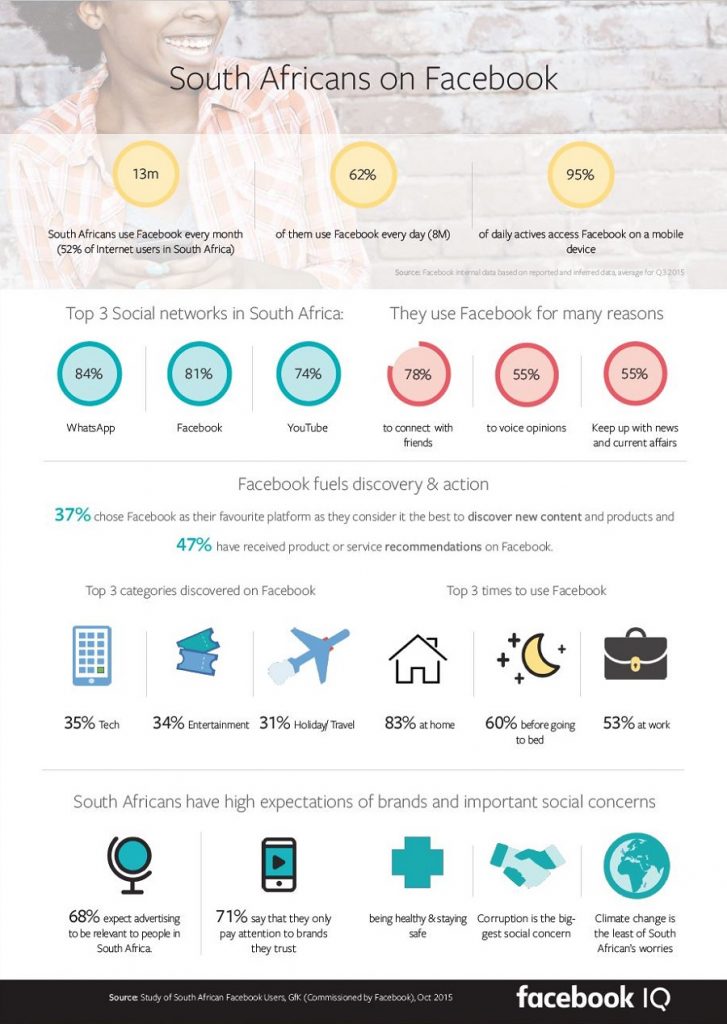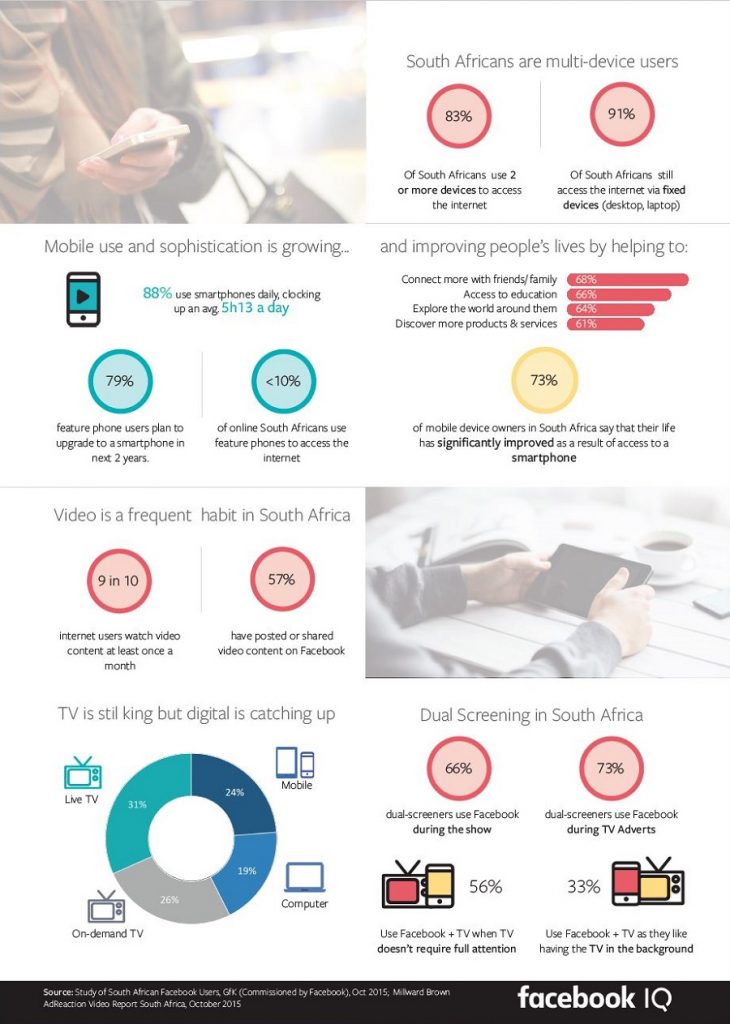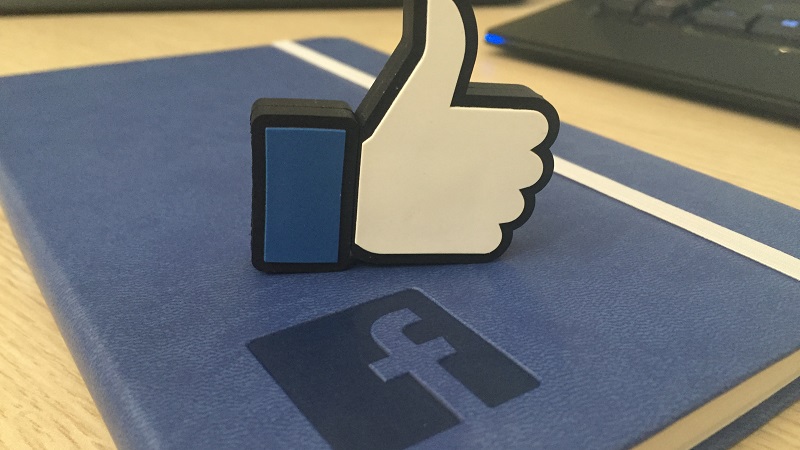It’s been exactly one year since Facebook opened an office in South Africa, and 12 months on the company is still learning how to better serve the African continent.
The office in Johannesburg doesn’t really deal with products or innovation. The office’s remit is to assist local businesses with using Facebook, and serve as a springboard for Facebook in the rest of Africa.
“We need to make sure that all brands are growing – those that have been around for 100 years and long before Facebook, to the business that disrupt the industry,”said Nunu Ntshingila, who was appointed last year to serve as the head of Facebook in Africa.
“But everything is going into a certain level of disruption, and the question for us is: how do we accommodate that and continue to grow with that?”
In South Africa, there are 14 million people who use Facebook every month (which roughly translates to about 52% of Internet users in South Africa), but Ntshingila stresses that a lot more needs to be done in order to connect the rest of Africa.
“There are 800 million people that yet need to be connect to the internet, so it is important that we connect those people,” Ntshingila said. “We need to fast-forward the rate of connection, because if people can connect to the internet, they will be able to connect to a business. This is important for businesses, but also important for the economy of a country.”
One of the projects that Facebook plans to launch later this year is the company’s own satellite. The launch of the internet-beaming satellite will form part of its Internet.org and will be done in collaboration with Eutelsat.
Mark Zuckerberg in a Facebook post in April said “a new satellite called AMOS-6 is going to provide internet coverage to large parts of Sub-Saharan Africa. The AMOS-6 satellite is under construction now and will launch in 2016 into a geostationary orbit that will cover large parts of West, East and Southern Africa.”
It is going to be a massive undertaking, but Ntshingila said that Facebook is privileged to be part of what she calls the fourth industrial revolution – which is global connections.
That is on a global scale, but for South Africa the local office has been set up to deepen Facebook’s relationship with local clients.
“What we do here is traveling in the market, to better understand our clients and how best to serve them. And of course, we need to make sure that everybody knows how we operate,” she said.
As part of that, Facebook in April launched the Agency Ambassador Programme in Africa, by bringing 32 agencies from across Africa together for intensive training sessions on how to better make use of Facebook’s marketing and social tools.
“We brought them together to learn how they see us and how they experience us. In return, we teach them about Facebook’s tools,” Ntshingila explained.
Going forward for Facebook, Ntshingila said that it is the company’s goal to understand how people are behaving – not just on Facebook but in the real world, and where they are spending their time.
Mark Hamilton, who has the rather long title of Head of Marketing Communications for the Central Eastern, Europe, Middle East and Africa (CEEMEA) region, explained its African plan is also in line with it global strategy – which is mobile.
“Mobile is very important to connectivity, and Facebook is at the centre of that. Take a look at virtual reality (VR) and Augmented Reality (AR), it is becoming more popular,” he said.
He also explained that more people in Africa are now not only making better use of video, but also 360-degree videos.
“Our mission is to make the world more open and connected. What is driving that? Mobile,” Hamilton explained, adding that only 3.2 billion people are connected out of the world’s population. “We have the ability to address that, because that is what we want to do.”
Between Internet.org, Free Basics and its solar-powered drone Aquila, it is clear that Facebook has set Africa as a priority. We’ll have to see how its plans pan out.



